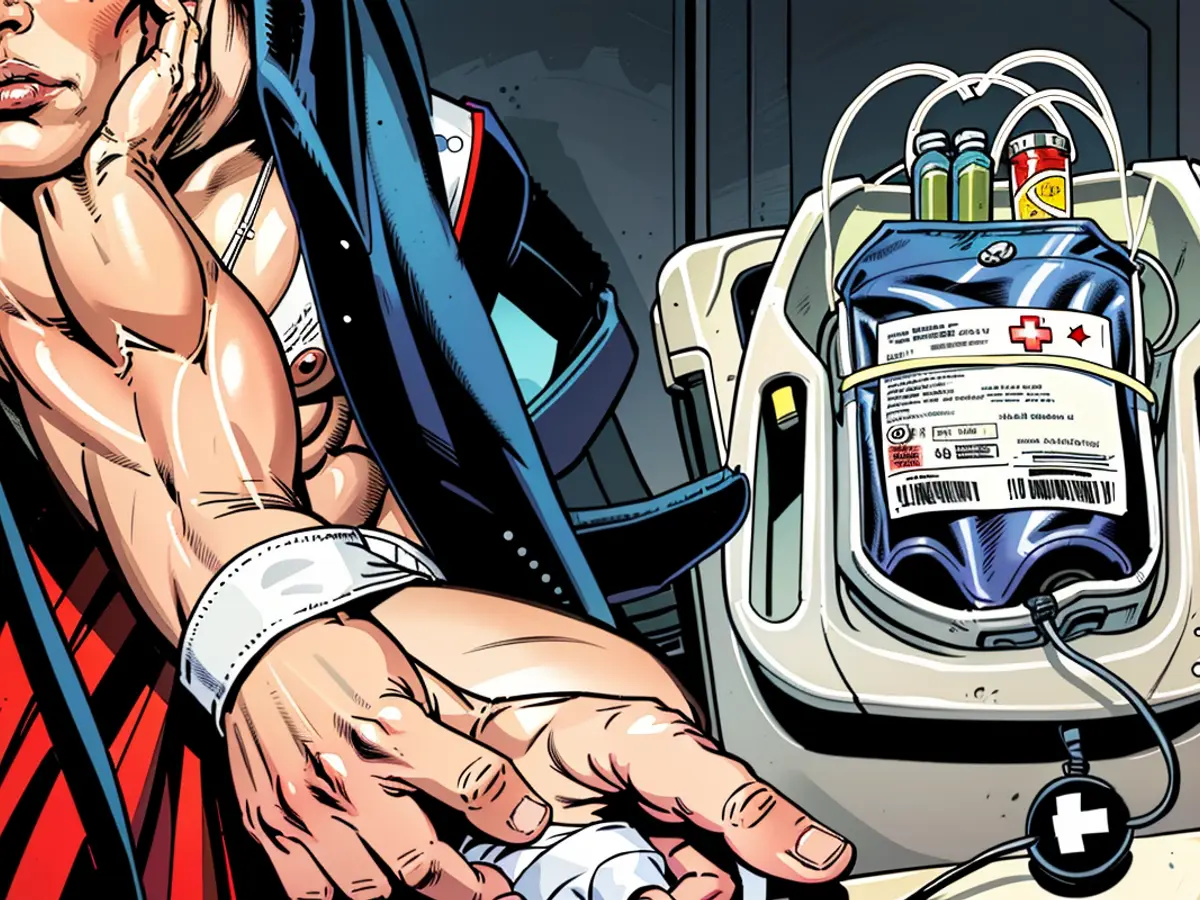Mental or physical well-being. - Generational transformation in blood donation: Previously donors now receive blood.
The German Red Cross is on the search for new regular blood donors as the baby boomer generation starts to age and eventually withdraw from the donor pool. This is expected to result in 275,000 donors from the strong donor age groups being lost in the coming years due to health issues. As a result, there will be more and more individuals in need who have never donated blood before and keep coming back. To highlight the significance of the matter, World Blood Donor Day occurs annually on June 14th.
Blood cannot be manufactured or replicated, making donations essential for saving lives during operations or after serious accidents. Blood transfusions help improve individuals' chances of survival. It only takes an hour of your time to donate blood. Dates and locations for donations can be found online.
The University Hospital Halle runs their own blood donation efforts, but the number of donors has remained the same over the past two years. According to their medical director for transfusion medicine, 16% of the donors there were first-timers in 2023. To keep up with the evolution in donors, the University Hospital Halle (Saale) is prioritizing young, first-time donors. The hospital's board realizes the importance of having a hospital-owned blood donation system and has earmarked resources for its improvement.
Previously, the University Medical Center in Magdeburg also managed its own blood donation, but it stopped operations at the beginning of this year. Now, the Red Cross takes charge of organizing donations in the area.
The Red Cross in Saxony-Anhalt revealed that around 3,300 first-time donors registered this year, accounting for 8.4% of all donors. This is a slight drop from the previous year's 8.6% percentage. The number of donors has remained consistent overall.
To boost the number of donors, some requirements have been revised. The previous age limit has been removed, allowing anyone eighteen or older to donate blood if they meet the set health conditions. Additionally, the Red Cross has ceased turning away homosexual or bisexual people due to their sexual orientation. "We haven't seen a significant increase in donations as a result," said the Red Cross for Saxony-Anhalt.
To draw in potential new donors, the organization is utilizing various digital platforms and campaigns, such as "#missingtype - only when it's missing, does it matter." With the participation of partners from sports, media, and business, they're aiming to attract attention towards blood donation. The concept of "#missingtype" involves omitting the blood group letters A, B, and O from names or logos, which effectively drives attention towards the need for blood donations.
The Red Cross aims to avert a blood donation shortage this summer. At present, they have a stock of around 11,000 units, which is slightly above the minimum requirement. There has been a growing demand from clinics, with around 22,244 requests so far this year, all of which have been fulfilled due to the strong willingness to donate. Yet, the number of donors has decreased recently, with blood group types B-negative, A, and O experiencing significant stock shortages. It's crucial that donations continue at a steady rate during the summer months and on hot, busy days.
Blood Donation Appointments from the Red Cross can be found online.
Read also:
- In response to the expected decline in blood donors from the baby boomer generation, the Red Cross in Magdeburg, located in Saxony-Anhalt, has taken charge of organizing blood donations in the area.
- To combat the anticipated shortage of blood donors due to generation change, the Red Cross is utilizing digital platforms and campaigns, such as "#missingtype," to increase awareness and encourage first-time donors.
- The German Red Cross is actively recruiting new regular blood donors, particularly young individuals, to replenish the pool lost due to health issues among the baby boomer generation, thereby ensuring an adequate supply of blood for emergencies.
- To address the expected loss of 275,000 donors from strong age groups in the coming years, hospitals such as the University Hospital Halle (Saale) in Magdeburg prioritize young first-time donors to keep up with the generational transformation in blood donation.








